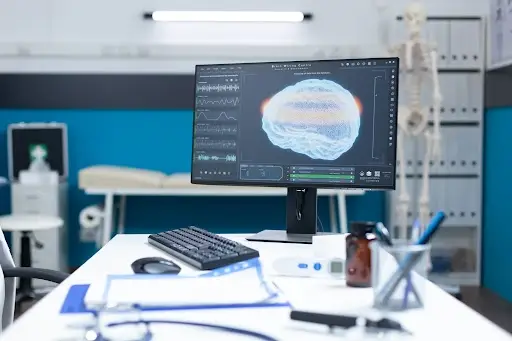Welcome to the MedsRole Blog. Good healthcare billing is imperative for the financial health of any practice in today’s healthcare environment; these systems are very important and vital in any claims submission processes that may ensure a good reimbursement and minimal delay in revenue cycles.
This blog post will address three types of medical billing systems in Healthcare : Closed systems, Open systems, and Isolated systems. Each has a distinct strength and weakness; this knowledge of strengths and weaknesses will guide you in making a decision as to which might be appropriate for your practice.
-
Closed Medical Billing System
A closed medical billing system involves electronic tools to monitor the records of a single practice. EMR’s are the most popular electronic tools used. This is a system used in keeping all records of information about a patient, from the time of diagnosis, treatment, and plans. It is an electronic paper chart for a medical paper chart. It can only be used within the practices.
Let’s explore its Advantages and Disadvantages mentioned below:
Advantages:
-
Reduced risk of data errors.
-
It Can easily integrate with EHR and practice management software.
-
Comprehensive functionality, such as claims, coding, and denial management.
Disadvantages
-
Lacks Flexibility: Practices may be limited to the offerings and capabilities of the vendor, which in turn may deny specific customization.
-
Higher Dependency: Organizations may become dependent on one vendor, which may sometimes be risky when the vendor fails to provide adequate support or service.
Open medical billing system allows the ease of information to anyone, including providers, patients, chief stakeholders, insurance payers, medical billing teams, and third-party vendors. This is because all the information transfers to EHR, which makes it easy to be edited and accessed by several medical professionals. This is also integrated in such a way that data does not reach any unauthorized users, hence keeping it secure.
Let’s explore its Advantages and Disadvantages mentioned below:
Advantages:
-
Provides More flexibility and customization
-
It Can integrate with various EHR and practice management systems.
-
It Lowers the initial costs.
Disadvantages:
-
Higher risks of data corruption due to possible integration issues
-
More complex implementation and maintenance
-
Needs extra medical billing software and hardware
-
Isolated Medical Billing Systems
Isolated medical billing systems rarely participate in the medical billing structures but can immensely benefit health care providers. Instead of a health care provider or organization, patients solely maintain an isolated medical billing system through a Personal Health Record (PHR).
The patients add their health information to these records, maintain them, and refer to them at any time. The patients may also seek assistance from some software tools for maintaining the PHR.
Let’s explore its Advantages and Disadvantages mentioned below:
Advantages:
-
Low in cost
-
Easy to implement and use
Disadvantages:
-
Has limited functionality
-
Error-prone data entry
-
Inefficient workflows
Wrapping Up
Knowing about the difference between closed, open, and isolated medical billing systems would be essential for health practitioners who wish to streamline and optimize billing processes. Every one of them has diverse advantages and disadvantages, so the specific needs of the practice should be determined to choose an appropriate one.
The medical billing services elaborated at MedsRole help your practice flow properly and increase its financial performance. Check out our services today to find the best solution to your healthcare needs!
Frequently Asked Questions:
-
How do I choose a billing system?
The following considerations are important when choosing a billing system:
Practice Size and Complexity, Budget, Integration Capabilities, Features and Functionality, Security and Compliance, Scalable to grow with your practice.
With proper thought over the above considerations, you should be able to find the right billing system for maximum revenue cycle and take your practice’s financial health out of the woods.
-
How do I choose the best medical billing system for my practice?
Your medical billing system choice would depend on the size of your practice, how big is the volume of claims, budget constraints, or whether you want to have in-house or outsourced billing.
-
Can I switch from one billing system to another?
Yes, practices can change billing systems, but a lot of planning should go into this to avoid causing a disruption. You may need billing experts to help you smoothly transition.








